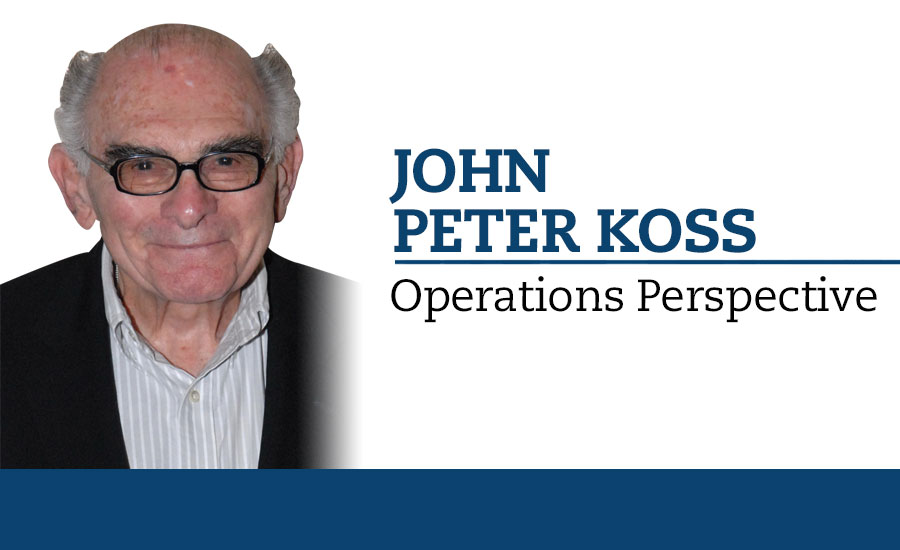Technological changes in beverage processes, machinery and manufacturing methods constantly are evolving into new or different designs, improved methods and procedures, faster and more flexible configurations, cost-effective projects, and in response to consumer preferences or agency regulations.
From an operations perspective, a technological evolution can involve the entire supply chain or focus on the processing and packaging (Pro/Pak) aspects where materials are converted into finished products. Trends during the past three decades indicate that the most proposed changes have been directed toward the Pro/Pak area, making the supply chain segment a logical starting point to discuss technological evolutions and personnel training issues.
Technological evolutions have had a serious impact on beverage operations and increasingly require more attention and resolutions. In some cases, these impacts are caused by high-frequency changes, premature applications, compliance requirements, Pro/Pak specifications and marketing demands.
A plethora of scenarios involving physical changes, experience, research and observation have indicated that anticipated labor or machine productivity might not be attainable. This is because of rapidly occurring high-frequency technology changes that might not always allow for proper attendant training on the redesigned or new processes, systems and machinery.
A review of operations can identify areas that might highlight any impacts that new technology could have had and will continue to have.
For more than 25 years, in carbonated soft drinks, brewing and other beverages, bulk-handling methods for receipt, storing and measuring raw materials have replaced manual handling with more automated, complex and flexible systems. Where applicable, support systems, including air, carbon dioxide and nitrogen, also have become more sophisticated and cost efficient.
The automation trend is continuing because advanced processing systems are being developed, and with inevitable ingredient changes (in physical characteristics), the evolution is moving faster than ever, requiring operators to be even more knowledgeable.
Whether it’s container handling or product distribution, machinery also is experiencing rapid changeover.
For example, manually unloading can, plastic or glass containers might still exist in some operations; however, many producers are using semi-automated or fully automated unloading systems from vehicle to storage. Even in container self-manufacturing situations, numerous technological application adjustments have been made that require advanced mechanical knowledge.
Cleaning containers has brought unattended semi-sophisticated systems requiring new technical knowledge and application know-how. As these empty containers are cleaned, an inspection could occur. New application instructions for cameras, scanners, beams and other high-tech devices have been necessary to ensure acceptable sanitization.
Filling containers is the crucial operation in the packaging platform. Although the rotary-filler concept has not significantly changed in many years, the components, capability and flexibility have been redesigned, prompted by speed, product, size and closures for various containers. The changes, in many cases, require additional instruction for operating larger, more complex and faster fillers.
Beverage container coding and labeling devices have been automated to the point where supplying materials is the only necessary task for effective operation. Automated packaging machinery with built-in changeovers and variable SKUs, turns previous machine operators into attendants versed in high-tech mechanisms.
Palletizing cases or units discharged from packaging equipment has required design alterations to cope with unit/case variation, container sizes and tier levels while maintaining a high degree of automation. Palletized packaged product stability related to storing (stacking or racks) has required wrapping with film to prevent damage. The operation is semi-automated and is performed dependent on movement to storing by automated ground vehicle or fork lift truck.
The myriad technological evolutions in beverage operations will require more innovative and intense competition in the future. But, regardless of how high-tech operations are, people always will be required to ensure that the technology works.
Technological advancements within beverage operations have occurred resulting in a change in training philosophies, but the bottom line is that operation managers must ask the following questions:
- Who will be competent to manage the on-going nature of the evolution?
- What has been done to ensure people are competent, kept up-to-date and focused on the future?
Technology has transformed operators into attendants, which emphasizes the need for knowledge on how to make new things work. This on-going fact is a mandate for obtaining, training and maintaining qualified people to cope with and operate all changes — as technology advances, so must training.


